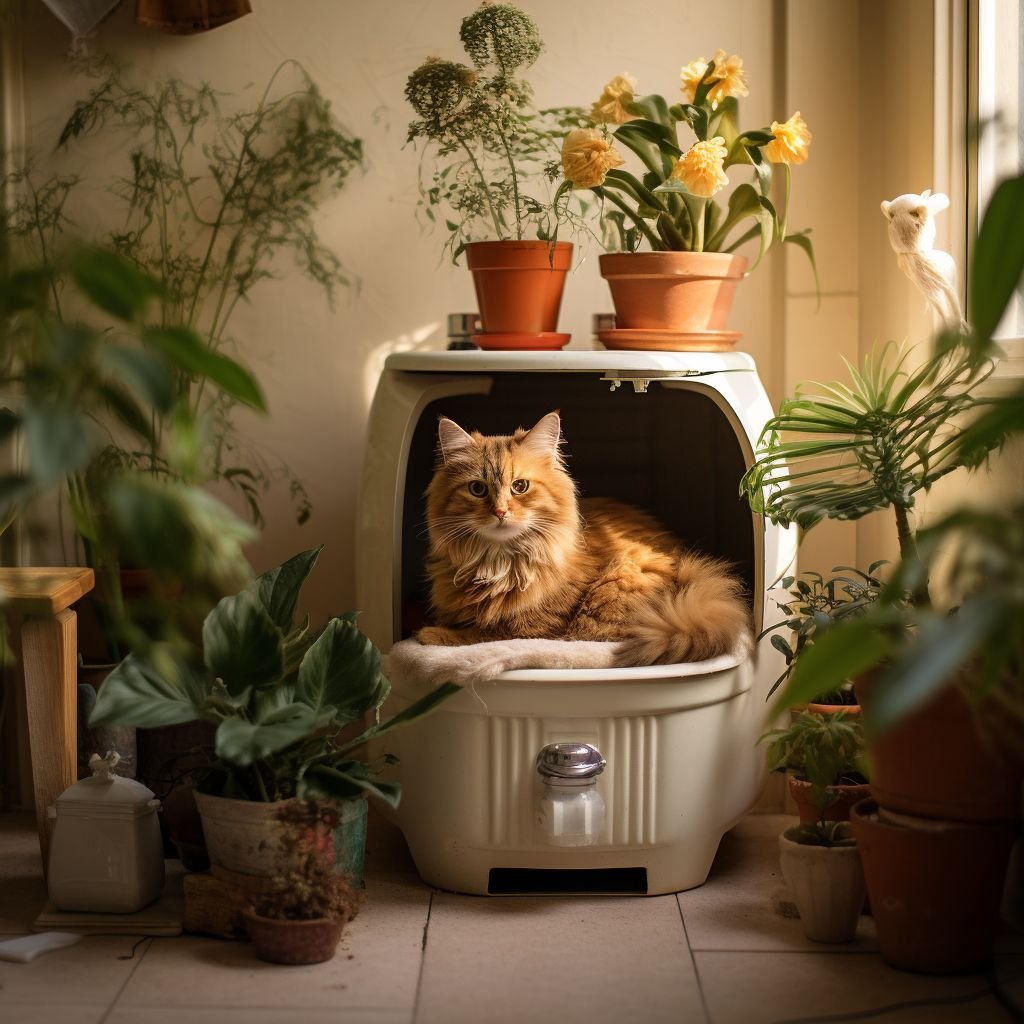If you’ve ever had a feline friend, you know that along with the companionship and playfulness they bring into your home, they can also bring an unwelcome feature: the distinct smell of their litter box. It doesn’t matter how much you adore your cat, the odor can be a challenging issue, often pervading your living space and making it less than inviting.
However, it’s not an insurmountable problem. There are effective strategies to combat the smell and enjoy a fresh, clean home without having to sacrifice the joys of cat ownership.
1. Clean the Litter Box Regularly
The most effective way to prevent litter box odors is to clean it often. Ideally, scoop out waste every day—at least once, but the more often, the better. Additionally, empty and scrub the box with a mild detergent at least once a week to prevent smells from building up. Make sure the box is dry before adding fresh litter.
2. Choose the Right Type of Litter
The type of litter you choose can significantly impact how well smells are controlled. Clumping litter is often recommended because it’s easier to remove all waste, reducing odor more effectively. Additionally, some litters are infused with odor-neutralizing ingredients like baking soda or activated charcoal, which can help to keep smells at bay.
3. Maintain a Litter Box for Each Cat Plus One
In multiple-cat households, the rule of thumb is to have one litter box per cat, plus one extra. This ensures that the boxes are used evenly and prevents them from becoming overloaded with waste, which can lead to increased odor and potential territorial issues among your cats.
4. Ventilation is Key
Proper ventilation helps keep air in the home fresh and allows odors to dissipate. Make sure the area around the litter box is well-ventilated. If possible, place the litter box near a window or airflow source, but do not place it close to your air conditioning or heating vents as this can spread the odor throughout your house.
5. Use a Litter Box Liner
Liners can make cleaning up easier and prevent urine from soaking into the plastic of the litter box, which can retain odors even after cleaning. Replace liners each time you change the litter and clean the box to help minimize smells.
6. Consider a Litter Box Enclosure
Enclosures can help contain litter box odors, as well as provide your cat with privacy. Ensure that the enclosure is cleaned regularly, as odors can accumulate inside if neglected. Additionally, an enclosure can help prevent litter from being scattered outside the box.
7. Baking Soda: A Natural Odor Absorbent
Sprinkling baking soda in the bottom of the litter box before adding litter can absorb unpleasant odors without using chemical deodorizers. Baking soda is non-toxic and won’t bother most cats, but it’s always a good idea to introduce any changes slowly to ensure your cat accepts it.
8. Use an Air Purifier
An air purifier with a HEPA filter and/or activated carbon can help filter out particles and odors from the air. While this doesn’t replace cleaning the litter box, it can assist in minimizing ambient odors in the household.
9. Replace the Litter Box Annually
Over time, the plastic in litter boxes can absorb odors, even with regular cleaning. Replacing the litter box once a year or when it shows signs of wear can help prevent this buildup and keep smells at bay.
Getting rid of litter box smell is a manageable task with regular upkeep and the right tools at your disposal. By following these tips and maintaining a clean living space for your cat, you can enjoy a comfortable home without having to put up with unpleasant odors. Remember, a clean litter box is not only good for your nose but also important for your cat’s health and well-being.
